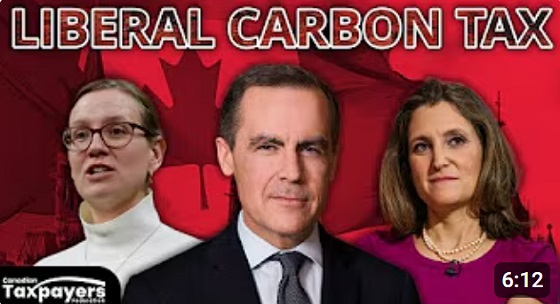Business
Don’t call it space exploration: DND bankrolls feminist report on outer space

From the Canadian Taxpayers Federation
Author: Ryan Thorpe
Current approaches to outer space are “heavily Western, state-centric, militarized, masculinized, and colonial,” and encourage practices that are “racist, exploitative, elitist, and environmentally destructive.”
That’s according to an intersectional feminist report on outer space bankrolled by the Department of National Defence to the tune of $32,250 in taxpayer cash.
“We have lots of problems down here on Earth and maybe we should focus on getting those fixed before we spend tens of thousands of dollars talking about how to talk about space,” said Kris Sims, Alberta Director of the Canadian Taxpayers Federation. “I think a lot of Canadians can think of a lot of causes that need $32,250 more.”
The CTF obtained a copy of the DND funding agreement with the report authors through an access-to-information request.
The CTF also reviewed a copy of the report.
The report trumpets the need for feminist and decolonial approaches to space security and space exploration.
“Terms such as ‘mankind,’ ‘astronauts and envoys of mankind,’ ‘man’s entry into outer space,’ ‘manned and unmanned stations of the moon,’ ‘manned spacecraft,’ and ‘man-made’ are… gender-biased,” according to the report.
Despite concern over “gender-biased” language, the funding proposal notes “women and other genders are not, for the most part, present in outer space.”
The report claims “colonial-based terms like ‘exploration’ and ‘conquest’… normalize violence and exploitation” by depicting space as a “hostile and desolate environment that is unpeopled/inhuman and controlled so it can provide an extractable resource.”
“Indigenous perspectives” imbedded in “spirituality, astrology, and cosmology, the last of which views celestial bodies in space as animated beings and not mere objects” should be better reflected in approaches to outer space, according to the report.
The report also advocates for “alternatives to dominant, colonial ways of knowing.”
The report was produced by Project Ploughshares, which describes itself as a “Canadian peace research institute” and an “operating division of the Canadian Council of Churches.”
Project Ploughshares, based on the University of Waterloo campus, previously received four other federal research contracts totalling $155,875, according to the funding proposal.
The project was pitched to DND as an opportunity to “draw on feminist/gendered analysis to apply a [Gender-Based Analysis] understanding to Canadian and international space security policy.”
The project included briefings and training with representatives from DND, the Canadian Armed Forces and Global Affairs Canada, as well as a separate “briefing and Q&A session for government officials,” according to the records.
“Many voices have long been absent from space security discussions, including those of women; those from the Global South; black, Indigenous, and other people of colour (BIPOC); and 2SLGBTQ+ individuals,” according to the report.
“It took the equivalent of a neighbourhood’s worth of income tax bills to pay for this study,” said Sims. “Would any of those families have ranked this report among their 100 concerns? It’s time to stop spending taxpayers’ money on studies like this.”
2025 Federal Election
MEI-Ipsos poll: 56 per cent of Canadians support increasing access to non-governmental healthcare providers

-
Most believe private providers can deliver services faster than government-run hospitals
-
77 per cent of Canadians say their provincial healthcare system is too bureaucratic
Canadians are increasingly in favour of breaking the government monopoly over health care by opening the door to independent providers and cross-border treatments, an MEI-Ipsos poll has revealed.
“Canadians from coast to coast are signalling they want to see more involvement from independent health providers in our health system,” explains Emmanuelle B. Faubert, economist at the MEI. “They understand that universal access doesn’t mean government-run, and that consistent failures to deliver timely care in government hospitals are a feature of the current system.”
Support for independent health care is on the rise, with 56 per cent of respondents in favour of allowing patients to access services provided by independent health entrepreneurs. Only 25 per cent oppose this.
In Quebec, support is especially strong, with 68 per cent endorsing this change.
Favourable views of accessing care through a mixed system are widespread, with three quarters of respondents stating that private entrepreneurs can deliver healthcare services faster than hospitals managed by the government. This is up four percentage points from last year.
Countries like Sweden and France combine universal coverage with independent providers and deliver faster, more accessible care. When informed about how these health systems run, nearly two in three Canadians favour adopting such models.
The poll also finds that 73 per cent of Canadians support allowing patients to receive treatment abroad with provincial coverage, which could help reduce long wait times at home.
Common in the European Union, this “cross-border directive” enabled 450,000 patients to access elective surgeries in 2022, with costs reimbursed as if they had been treated in their home country.
There’s a growing consensus that provincial healthcare systems are overly bureaucratic, with the strongest agreement in Alberta, B.C., and Quebec. The proportion of Canadians holding this view has risen by 16 percentage points since 2020.
Nor do Canadians see more spending as being a solution: over half say the current pace of healthcare spending in their province is unsustainable.
“Governments shouldn’t keep doubling down on what isn’t working. Instead, they should look at what works abroad,” says Ms. Faubert. “Canadians have made it clear they want to shift gears; now it’s up to policymakers to show they’re listening.”
A sample of 1,164 Canadians aged 18 and older was polled between March 24th and March 28th, 2025. The margin of error is ±3.3 percentage points, 19 times out of 20.
The results of the MEI-Ipsos poll are available here.
* * *
The MEI is an independent public policy think tank with offices in Montreal, Ottawa, and Calgary. Through its publications, media appearances, and advisory services to policymakers, the MEI stimulates public policy debate and reforms based on sound economics and entrepreneurship.
2025 Federal Election
POLL: Canadians say industrial carbon tax makes life more expensive

The Canadian Taxpayers Federation released Leger polling showing 70 per cent of Canadians believe businesses pass on most or some of the cost of the industrial carbon tax to consumers. Meanwhile, just nine per cent believe businesses pay most of the cost.
“The poll shows Canadians understand that a carbon tax on business is a carbon tax on Canadians that makes life more expensive,” said Franco Terrazzano, CTF Federal Director. “Only nine per cent of Canadians believe Liberal Leader Mark Carney’s claim that businesses will pay most of the cost of his carbon tax.
“Canadians have a simple question for Carney: How much will your carbon tax cost?”
The federal government currently imposes an industrial carbon tax on oil and gas, steel and fertilizer businesses, among others.
Carney said he would “improve and tighten” the industrial carbon tax and extend the “framework to 2035.” Carney also said that by “changing the carbon tax … We are making the large companies pay for everybody.”
The Leger poll asked Canadians who they think ultimately pays the industrial carbon tax. Results of the poll show:
- 44 per cent say most of the cost is passed on to consumers
- 26 per cent say some of the cost is passed on to consumers
- 9 per cent say businesses pay most of the cost
- 21 per cent don’t know
Among those decided on the issue, 89 per cent of Canadians say businesses pass on most or some of the cost to consumers.
“Carbon taxes on refineries make gas more expensive, carbon taxes on utilities make home heating more expensive and carbon taxes on fertilizer plants increase costs for farmers and that makes groceries more expensive,” Terrazzano said. “A carbon tax on business will push our entrepreneurs to cut production in Canada and increase production south of the border and that means higher prices and fewer jobs for Canadians.”
-

 Bruce Dowbiggin2 days ago
Bruce Dowbiggin2 days agoIs HNIC Ready For The Winnipeg Jets To Be Canada’s Heroes?
-

 COVID-192 days ago
COVID-192 days agoCOVID virus, vaccines are driving explosion in cancer, billionaire scientist tells Tucker Carlson
-

 Dr. Robert Malone2 days ago
Dr. Robert Malone2 days agoThe West Texas Measles Outbreak as a Societal and Political Mirror
-

 illegal immigration2 days ago
illegal immigration2 days agoDespite court rulings, the Trump Administration shows no interest in helping Abrego Garcia return to the U.S.
-

 Health2 days ago
Health2 days agoHorrific and Deadly Effects of Antidepressants
-

 2025 Federal Election2 days ago
2025 Federal Election2 days agoConservative MP Leslyn Lewis warns Canadian voters of Liberal plan to penalize religious charities
-

 2025 Federal Election1 day ago
2025 Federal Election1 day agoEuthanasia is out of control in Canada, but nobody is talking about it on the campaign trail
-

 Education1 day ago
Education1 day agoSchools should focus on falling math and reading grades—not environmental activism







